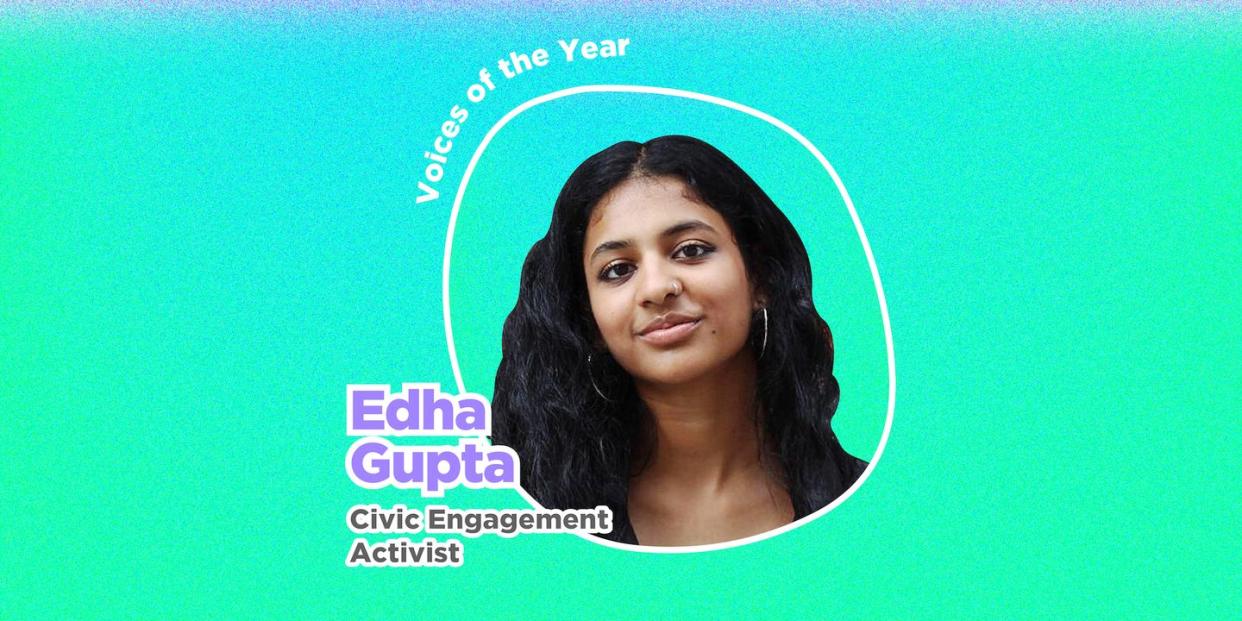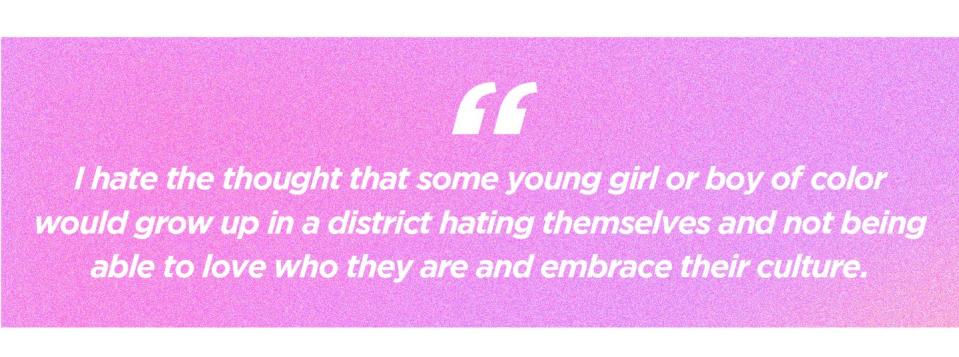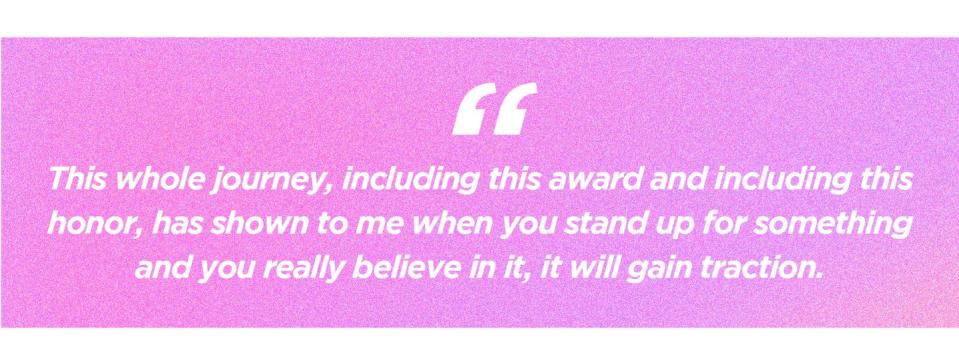Edha Gupta Fought Against Her School's Book Ban and Created a More Equitable Education System

- Oops!Something went wrong.Please try again later.
From her first day of school at 4-years-old, Edha Gupta, 17, remembers experiencing racism and discrimination in her York, Pennsylvania, classrooms. "I dealt with it myself, as people would criticize a lot of my culture and my traditions, and I often felt ashamed in my own skin," she told Seventeen. By her senior year at Central York High School, Edha, a first-generation immigrant from India, was ready to take action against the inequity she experienced when her school district imposed a freeze on a newly introduced anti-racist reading list.
In August 2020, a diversity committee compiled a resource list of 300 anti-racist books, movies, and teaching materials to guide students in the wake of George Floyd's murder and subsequent Black Lives Matter uprisings that followed. Three months later, the Central York School board announced a district-wide freeze on the guide, and Edha knew she had to do something about it.
As the 2021-2022 school year approached in September, Edha immediately came up with a plan. An active member of Central York's Panther Anti-Racist Union, she wrote an op-ed for a local newspaper, created a Change.org petition, and helped coordinate daily protests, advocating against the ban. "To me, teaching diversity and inclusion was preventing what I had to go through in my childhood," she said. "What motivated me was thinking about these young kids that were going to have to suffer through the same discrimination I suffered."
Edha and her peers fought tirelessly for three weeks, garnering over 5,000 petition signatures and bringing out 200 people to protest the freeze at school board meetings. Their quest for access to uplifting and affirming racial and social justice-based resources became a national news story, drawing attention from various media outlets. Finally, on September 20, 2021, the Central York school board voted to reverse the ban. Edha has big plans for her future, and it's only up from here.
Tell us about what inspired you to get your school district's book ban reversed.
In libraries and read alouds, there would only be stories with white kids showcased. There were no students of color or any diversity showcased in my educational books. That contributed to me feeling very isolated throughout my whole education. This feeling of being a pariah in my community was building up for a long time.
When [Central York's resource freeze] happened, I knew this wasn't a problem that was just arising.
Diversity in education is so important for a young child of color to embrace themselves and embrace their voice. I hate the thought that some young girl or boy of color would grow up in a district hating themselves and not being able to love who they are and embrace their culture.
What's the most rewarding thing about getting the book ban reversed?
We went into activism mode, protesting in front of our school, and speaking to the media, and going to board meetings and talking, we all did that with the intention of getting the book ban reversed.

Another one of the great things that have come out of this is how I've seen a community really come together. This is a fairly small town. It's quaint. It's York, Pennsylvania, and it's a town in which you see a lot of different views being held. It's very scattered, but because of these events, you saw a community coming together.
It's really uplifting to see, in today's day and age, a community come together to stand for up for one cause and be voices for something that matters to them. I think it was very inspiring.
What are your plans for the future?
I'm planning to major in neuroscience on the pre-med track to go into medicine in the future. One of my biggest motivations is to advocate for equal representation in medicine.
In medicine, so much is overlooked when it comes to different races and being respectful of someone's overall background and socioeconomic status. Seeing healthcare from the perspective of someone of color or someone who recognizes the difference in care that people may need is important. There's a lack of that in today's healthcare and with America being as diverse as it is, healthcare should encapsulate more inclusion.

I will continue to be a voice for marginalized communities. I look forward to helping people. I've always had a desire to help people in the community around me. In medicine, I can do that in more ways than one.
What does being a Voices of the Year honoree mean to you?
I'm honored and very humbled to have been offered this opportunity to be a voice of the year. It means to me that when you are a young person in this country, your voice can be heard. This whole journey, including this award and including this honor, has shown to me when you stand up for something and you really believe in it, it will gain traction.
Before this, I always had this very pessimistic perception of how young people can make an impact. This award, in honor of young people who are standing up for what they believe in, shows me that young people can be appreciated, and it inspires me to do more.
Photo courtesy of Edha Gupta; Design by Yoora Kim.
You Might Also Like

